Transport firm’s 10-year growth drive
A successful transport/logistics business is celebrating a milestone anniversary. February 2024 marks 10 years since Fenn Logistics Limited was acquired by current managing director Gary Major.
WNJ acted for the current MD during the acquisition process in 2013/2014 and today retains a very close relationship with the company, providing it with accountancy, taxation and business advisory services.
The past decade has seen Fenn Logistics, based near Burton-on-Trent, on a steady growth path, despite the many and varied challenges that have faced the logistics sector.
Over that time the company’s fleet has expanded from nine vehicles to 22 and its driving workforce has risen from nine to 31.
That growth has been driven by Fenn’s strong relationship with a key client, one of the largest food manufacturers in Europe, which sees it provide dedicated vehicles and drivers for its UK operations.
The business has also had a major rebrand during the past 10 years – changing its name from RG Fenn to Fenn Logistics to better represent the current operation.
There have been a series of big challenges along the way, not least the Covid pandemic. It saw Fenn and its team working hard to deliver vital food supplies up and down the country as part of the supply chain ‘frontline’.
As well as the pandemic, high fuel prices, HGV driver shortages and global events such as the war in Ukraine have all had an impact on the sector’s fortunes.
However, Fenn Logistics, which was originally founded more than three decades ago, has navigated through these uncertain times to reach its latest milestone with a strong sense of stability.
The company continues to provide solutions for some of the biggest names in UK business with its strong commitment to excellence. It has key clients across the country handling food, beverages and general cargo.
Gary Major, current managing director and owner, has been in third party logistics for more than 30 years and post-acquisition brought a different approach to managing its customers’ businesses, with vast experience in transport, warehousing, stock control, e-commerce and home delivery.
He says: “We have seen constant growth during the 10-year period since the acquisition and much of that has been as a result of our relationship with a key client that has been built up over a quarter of a century.
“Over the past decade that relationship has seen the number of vehicles and drivers we have committed to serving them more than triple.”
He adds: “Our place in the supply chain, that ‘final mile’, delivering to the client is what everyone gets judged and measured on. It’s a tough place to be and the hardest part of the journey.
“We’ve had our challenges, not least the pandemic. However, we’re seeing some of the issues, such as driver recruitment, begin to ease.
“It has been some journey over the 10 years and the team at WNJ have been with us every step of the way, starting with the support they gave me during the acquisition right up to the present day and our 10th anniversary.”
• To discuss how WNJ can help support your business please contact me on 01772 430000

